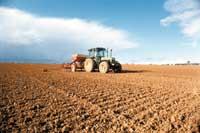Label and bio: What is the difference?
2001/06/15 Galarraga Aiestaran, Ana - Elhuyar Zientzia

The word ‘label’ means label in English and is a label established by the Foundation Kalitatea Fundazioa ‘Eusko Label’ for different products. Its functions are to identify products endorsed by the Foundation and differentiate them in the market from other products. Before the products were sold directly and the buyer knew who was coming. But habits have been changing and foods are marketed differently. This implies the identification of local products, incorporating to the production, preparation, packaging or packaging and identification tasks.
In order for a product to access the label, it is necessary to comply with the specific standards established by the Kalitatea Foundation. It contains a regulation that includes the scope of each product, the production process, the form of commercialization, the characteristics of the container, its identification, etc. Subsequently, the quality managers carry out the monitoring of the product to ensure compliance with all the characteristics.

The products with Eusko Label to date are: Gernika pepper, Guisantes de Ibarra, Basque tomatoes, Basque beans, Basque meat, Caserío chicken, Lamb, Honey, Bonito, Pasteurized Cow's milk, Various Vegetables in the Basque Country, Patata de Álava and Txakoli de Álava. In addition, there are products with denomination of origin such as the txakoli of Getaria and Bizkaia, the wine of Rioja Alavesa or the Idiazabal cheese. They must also comply with strict regulations and have certain characteristics.
Biological agriculture, for its part, has a new vision of food. Although the production process of baked products is of great importance (for example, in the case of label meat with the name of Euskal Okela, the welfare of livestock is taken into account), it is one of the main aspects to preserve in biological agriculture.

In fact, the fertilizers used in biological agriculture do not damage the environment, being prohibited the conventional pesticides and herbicides. The products used, in addition, are much easier to remove than those of conventional agriculture and do not generate toxicological and ecological effects as harmful as the rest.
The difference lies, therefore, in respect of the environment, and the objectives are different: the label protects the origin and certain characteristics and ensures that the products of biological agriculture have been produced respecting the environment and that they do not contain pesticides or herbicides.

Gai honi buruzko eduki gehiago
Elhuyarrek garatutako teknologia






